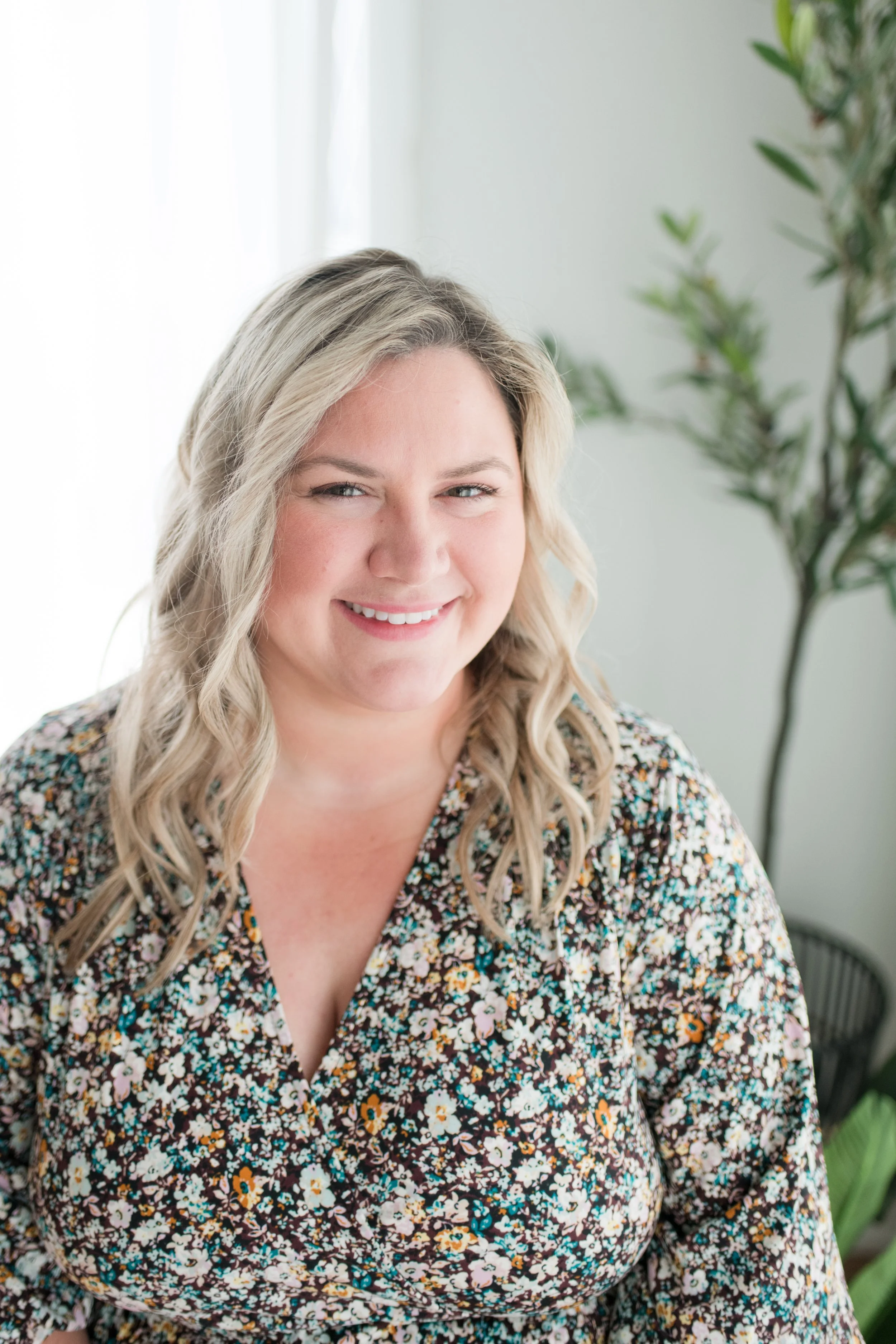Ohio Counselor Supervision
CSWMFT-approved training supervision for Ohio LPCs & supervision endorsement for LPCCs
Individual supervision is available for Ohio counselors who are:
Licensed Professional Counselors (LPCs) self-employed in their own private practice, working towards independent licensure (LPCC)
Licensed Professional Clinical Counselors (LPCCs) working towards their supervisory credential (-S)
Ohio LPC Counselor Supervision at Sea Glass may be a great fit if you are:
Working in your own private practice
Excited about specializing in trauma, EMDR, Christian clinical counseling, or sex therapy
Curious about wellness or holistic approaches to clinical counseling
Interested in the neurobiology of stress
Interested in expanding your knowledge of trauma-informed care
Concerned about legal and ethical concerns from a former workplace
Looking for another safe person to discuss supervision concerns
Experiencing secondary trauma and burnout early on in your career
Counselor Supervision is such a crucial part of your professional development. It’s so exciting to finally finish up grad school, get your LPC, and land your first counseling job. AND ALSO - it’s overwhelming! You’re finally (sort of) on your own, you have new professional relationships and responsibilities, and somehow working with clients outside of practicum and internship feels… different. If you’re an LPC starting off in private practice, you have additional professional challenges to navigate. If you’re already an LPCC and learning to supervise - that’s also tough!
Training Supervision is an opportunity to gain solid footing in your new role, explore the intersections of your professional and personal identities, and protect client welfare. LPC supervision is a great place to navigate professional challenges with a seasoned therapist - confusing clinical presentations, trying new skills, thinking through differential diagnoses, handling safety concerns, advocacy, and receive general support. It’s also a place to examine personal biases, work through countertransference, and learn more of who you are as a counselor.
It’s wise to have a clinical supervisor who isn’t in charge of your annual performance review. Think about the power dynamics at play there. It can be a real barrier to the kind of openness needed for good supervision. No need to suffer through that; give yourself the freedom of working with an independent supervisor who doesn’t determine your next raise.
Ohio Counselor Supervision Services & Rates
Individual LPC Training Supervision: $125 per hour
Supervision Endorsement: $650 - 7-hour package includes 1 hour of pre-consultation, 5 hours of observation, and 1 hour of post-consultation as required by CSWMFT Board.
Group: Only offered at this time through CONFLUENCE. (Next session spring 2025).
Meet Your Supervisor
Hey there! I’m Erin Pritchard. I’m an LPCC-S, EMDR Consultant™ and EMDRIA Certified EMDR therapist. I’m the owner of a group private practice in Ohio and have helped counselors across Ohio gain independent licensure, refine clinical skills, build confidence in working with clients, and start or grow their own private practices. Learn more about my professional background here.
I’m going to be honest - when I was an LPC, I had some terrible supervision experiences that really marred the beginning of my professional journey. I’m talking immediate workplace trauma and burnout-type of experiences. If you’re currently working with a supervisor and feel like things are off, I want you to know that I get it because I’ve been there.
It’s my goal as a supervisor to provide ethical, quality supervision; promote clinical excellence; and foster your professional development with great care. My hope is that our time together is empowering for you, and that you feel well-supported and practically equipped as you work towards your licensure goals.
A little about my professional background…
-
Inpatient dual diagnosis treatment center
Community mental health agencies
Primary care
Intensive outpatient (IOP)
Outpatient
Private practice
Virtual and in-person
-
Adults, adolescents, and children in trauma-focused settings
Men and women in recovery from substance abuse and dual diagnosis
Human trafficking survivors
Medical professionals
Mental health professionals
Executives
College students
Military and first responders
-
Anxiety and stress
Burnout and compassion fatigue
Depression
Post-Traumatic Stress Disorder (PTSD)
Complex trauma
Dissociation and Dissociative Identity Disorder (DID)
Bipolar Disorders
Alcohol and substance use disorders
Spiritual concerns
Purity culture deconstruction
Sexual dysfunction and intimacy concerns
Sleep Disorders
Personality Disorders
Self Care
Boundaries
Codependency
Emotional neglect/abuse
Relationship concerns
-
Individual, couples, and group psychotherapy
Experiential education
Adventure therapy
Motivational Interviewing
Attachment-based
Mindfulness-based
Trauma-informed care
Christian counseling
-
Legal and ethical issues in the counseling/therapy world
Coming up with an accurate diagnosis and understanding differential diagnoses in the DSM
Self care
Professional boundaries
Enneagram types
Counseling as a professional identity
The role of counseling and wellness in the overall healthcare system
Preventing secondary trauma and burnout as a helping professional
Schedule Ohio Counselor Supervision
Ohio Counselor Supervision FAQs
How do I get from LPC to LPCC in Ohio?
Complete a minimum of 24 months and 3,000 hours of supervised hours as a Licensed Professional Counselor (LPC)
1,500 of those hours must be spent providing clinical counseling services, which includes the diagnoses and treatment of mental and emotional disorders under an LPCC-S
No more than 1,500 hours can occur within one year
Complete 150 hours of training supervision with an LPCC-S
Have each supervisor complete the LPCC Supervision documentation online
Complete the LPCC application
Pass the NCMHCE Exam and email results to the CSWMFT Board
Complete background checks
View the CSWMFT Board’s Laws and Rules video
Can an LPC practice independently in Ohio?
No. Per Ohio CSWMFT Laws and Rules, the Ohio LPC is a dependent license. Ohio LPCs are required to have work supervision to practice, and training supervision of they are seeking to advance their licensure to an LPCC. Your work supervisor and training supervisor are allowed to be the same if they are an LPCC-S.
What’s the difference between training supervision and work supervision?
The Ohio Counselor, Social Worker, Marriage & Family Therapist (CSWMFT) Board differentiates between training supervision and work supervision for counselors. Work supervision is required for LPCs who are diagnosing and treating mental and emotional disorders. Training supervision is considered optional, for LPCs seeking independent licensure.
Training supervision is the type of supervision you need to advance your clinical licensure from an LPC to an LPCC- it’s primarily focused on protecting client welfare and building your clinical skills.
Work supervision is primarily focused on performance reviews, professional guidance, and assuming responsibility for diagnoses, treatment plans, and other documentation. An LPC working in their OWN private practice is still required to have a work supervisor.
Who can supervise an LPC in Ohio?
Training supervision can only be provided by an LPCC-S. This is the type of supervision you need to advance your clinical licensure from an LPC to LPCC.
Work supervision can be provided by an LPCC-S, psychologist, psychiatrist, independent marriage and family therapist (MFT), independent social worker, psychologist, or psychiatrist. Work supervision does NOT count towards your independent licensure hours.
How often should I have supervision as an LPC?
Ohio CSWMFT Laws and Rules states: “Training supervision shall include an average of 1 hour of contact between the supervisor and supervisee for every 20 hours of work by the supervisee.”
LPCs employed at an agency are typically scheduled to work 40 hours per week, so they can document up to 2 hours of training supervision per week. “Full time” in private practice is around 20 hours per week, so LPCs can usually document 1 hour of training supervision per week.
The board does not specify how often work supervision should occur.
Who can an LPCC-S supervise?
An Ohio LPCC-S can provide training supervision to LPCs, counselor trainees (CTs), and more recently, MFTs.
An Ohio LPCC-S can provide work supervision to LPCs, MFTs, social workers, social work assistants, chemical dependency counselors and certified prevention specialist assistants.
Can an LPC have a solo private practice in Ohio?
Yes! You can, as an LPC in Ohio, start your own private practice. This is a less traditional route, but if you have good supervision, engage in regular case consultation with experts and peers, seek out good CEUs/trainings, (and, might I recommend, have your own personal therapist), you can do it.
There’s pros and cons to both private practice and agency work; nothing is a perfect solution. It can take longer for an LPC in private practice to reach independent licensure than at an agency, due to the differences in “full time” hours and increased cost of self employment. Join the first training supervision cohort for LPCs in private practice.
Can an Ohio LPC be an independent contractor at a group practice?
Legally? That’s incredibly hard to justify, so… no. Do lots of group practices do it anyways? Unfortunately, yes. The crux of being an 1099 independent contractor is that you’re able to practice independently. This is a federal requirement, although some states have additional laws that specifically prohibit any counselors from being independent contractors.
In Ohio, an LPC is a dependent clinical license that requires work supervision to practice. Supervisors legally assume the responsibility for the welfare of their supervisees’ clients, and can make requirements of their supervisees. The very nature of a mandatory supervisory relationship negates the supervisee’s ability to practice independently.
If you’re an LPC at a group practice, make sure you’re not misclassified. It’s incredibly common. LPCs at group practices should really be w2 employees, not independent contractors. Think you might be misclassified? Reach out today to talk about your rights and how to advocate for yourself. I work with counselors all over Ohio navigating this concern.



